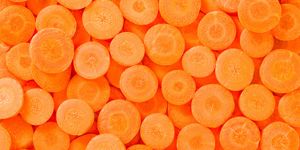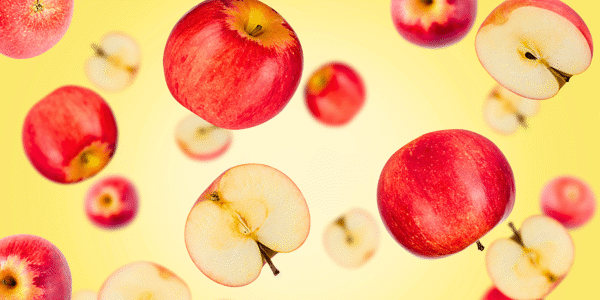Introducing solid foods to your baby is an exciting milestone. Carrots are a fantastic first food choice due to their natural sweetness, nutritional benefits, and versatility. In this article, we'll explore when it is best to introduce carrots to your baby and how to prepare them for different stages of baby-led weaning. We’ll provide easy recipe ideas, and discuss the benefits and potential allergen risks associated with carrots. If you’re unsure about introducing carrots to your baby, this is the article for you!
When Can Babies Start Eating Carrots?
Babies can typically start eating carrots around six months of age, which is the recommended age to begin introducing solid foods. At this stage, your baby’s digestive system is more developed and they can handle a wider variety of textures and flavours. Always ensure your baby shows signs of readiness, such as sitting up with minimal support, showing interest in food, and the ability to grasp and bring objects to their mouth.
How to Prepare Carrots for Baby-Led Weaning
Baby-led weaning (BLW) allows babies to explore foods at their own pace, encouraging self-feeding and the development of motor skills. Here’s how to prepare carrots for different ages:
6 Months Old
At six months, babies are just starting with solid foods, so the preparation of carrots should ensure they are soft and easy to handle:
Steamed Carrot Sticks: Cut carrots into sticks about the size of an adult finger and steam them until they are soft enough to mash between your fingers. This makes them easy for your baby to hold and gnaw on.
Carrot Puree: For a smoother option, blend steamed carrots into a smooth puree, adding a little water or breast milk to achieve the desired consistency.
9 Months Old
By nine months, your baby might be ready for more texture and variety in their diet:
Carrot Cubes: Steam carrots and cut them into small, bite-sized cubes that your baby can pick up and chew. This helps develop their pincer grasp.
Carrot Patties: Mix grated carrot with a bit of egg and flour to form small patties, then lightly fry or bake until they are cooked through. These are great for introducing new textures.
12 Months Old
At twelve months, babies are usually eating a variety of family foods and can handle more complex textures:
Roasted Carrot Slices: Roast carrot slices with a little olive oil until they are tender. These are flavorful and easy for your baby to chew.
Carrot and Lentil Stew: Incorporate diced carrots into a hearty stew with lentils and other vegetables. This dish is nutritious and provides a balanced meal.
Easy Recipe Ideas for Carrots
Carrots can be incorporated into various recipes that are both nutritious and baby-friendly. Here are some easy ideas:
Carrot Noodles
Ingredients: 2 large carrots, olive oil.
Instructions: Use a spiralizer to create carrot noodles. Sauté the noodles in a pan with a little olive oil until they are tender. Serve as a side dish or mix with other vegetables.
Carrot Cake Muffins
Ingredients: 1 cup grated carrots, 1 cup whole wheat flour, 1 tsp baking powder, 1/2 tsp cinnamon, 1 egg, 1/4 cup applesauce, 1/4 cup milk.
Instructions: Preheat the oven to 175°C. Mix the dry ingredients in one bowl and the wet ingredients in another. Combine the two mixtures, then fold in the grated carrots. Pour the batter into a muffin tin and bake for 20-25 minutes or until a toothpick comes out clean.
Carrot and Apple Mash
Ingredients: 2 large carrots, 1 apple, water or breast milk.
Instructions: Peel and dice the carrots and apple. Steam the carrots and apple together until they are tender. Mash them with a fork or blend until smooth, adding a little water or breast milk to reach the desired consistency. This sweet and nutritious mash is perfect for babies starting solids.
Carrot and Chickpea Patties
Ingredients: 1 cup grated carrots, 1 cup cooked chickpeas, 1/4 cup bread crumbs, 1 egg, a pinch of cumin (optional).
Instructions: Mash the cooked chickpeas in a bowl. Add the grated carrots, bread crumbs, egg, and cumin. Mix well until the ingredients are combined. Form small patties with the mixture. Lightly fry the patties in a non-stick pan with a little oil until golden brown on both sides or bake them in the oven at 175°C for about 15-20 minutes. These patties are great for older babies who are exploring more textures and flavours.
What Makes Carrots Beneficial for Babies?
Carrots are packed with essential nutrients that are beneficial for your baby’s growth and development:
Vitamin A: Carrots are rich in beta-carotene, which the body converts into vitamin A. This vitamin is crucial for healthy vision, immune function, and skin health.
Fibre: The fibre in carrots aids in digestion and helps prevent constipation.
Antioxidants: Carrots contain antioxidants that help protect the body’s cells from damage.
Vitamins and Minerals: In addition to vitamin A, carrots provide vitamin K, vitamin C, potassium, and calcium, all of which support various aspects of your baby’s health and development.
Are Carrots a Common Allergen?
Carrots are not commonly known to cause allergies in babies. However, it's important to introduce any new food with caution. Watch for signs of an allergic reaction, such as rash, swelling, or difficulty breathing, especially if there is a family history of food allergies. If you notice any of these symptoms, contact your paediatrician immediately. Additionally, it's good practice to introduce new foods one at a time and wait a few days before adding another new food, to easily identify any potential allergic reactions.
Additional Tips for Introducing Carrots to Your Baby
Start Slow: Introduce carrots gradually and observe your baby’s reaction.
Mix with Other Foods: Combine carrots with other vegetables or fruits to add variety and make meals more appealing. For example, carrots pair well with sweet potatoes, apples, and peas.
Stay Consistent: Consistency is key when introducing new foods. Offer carrots regularly but don’t force them if your baby initially rejects them. Sometimes it takes multiple exposures for a baby to accept a new food.
Use Creative Presentation: Make carrots fun by using different shapes and preparations, like carrot stars made with a small cookie cutter or mixing grated carrots into other dishes.
Involve Your Baby in Mealtime: Encourage your baby to join family meals, allowing them to observe and mimic eating behaviours. This can increase their interest in trying new foods like carrots.
Conclusion
Introducing carrots to your baby can be a fun and rewarding experience. With their vibrant colour, sweet taste, and numerous health benefits, carrots are an excellent addition to your baby’s diet. By following the guidelines and recipe ideas provided, you can ensure that your baby enjoys this nutritious vegetable in a safe and delicious way.







